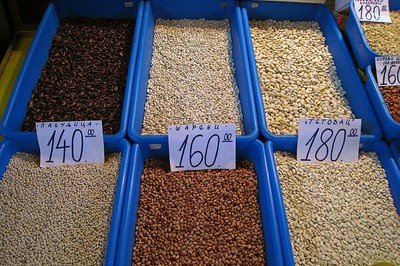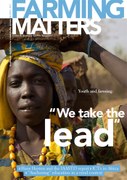
If there is one thing that the world food crisis has shown us it is that heavily relying on global food markets can be dangerous – especially for the urban areas and where households rely on imported food.
This is a strong argument in favour of strengthening local and regional food systems. These are characterised by fewer intermediaries, lower transportation costs and more personal forms of exchange, resulting in less risky transactions.
Producers and consumers can exert a greater degree of control, allowing for quantities and prices to be negotiated locally, and for more value to remain within the region. Moreover, proponents of regional food systems argue that this contributes to increased food security, benefits the environment and increases the autonomy of farmers.
Regional food systems, however, run against the dominant paradigm that sees global markets and modern technologies as the way forward in agriculture. And they also run against another paradigm: one that considers global food security mainly in terms of the quantity of food available. But addressing hunger and malnutrition is not just about calories. It is about the quality of the diet, which inherently means variety. In many parts of the world, regional food systems used to provide a large variety of local grains, tubers, pulses, green leaves, wild fruits and berries, meat and fish. Today, much of that diversity has gone.
We invite you to share your experiences in strengthening local and regional food systems. How to create the conditions that can support their development? What role can farmers, consumers, farmer organisations, the private sector, field technicians, government programmes and the media play to (re)create regional food systems? How do they contribute to improved food and nutrition security? We will examine initiatives taking place and ask what farmers and consumers think about them and what lessons we can draw from them.
We welcome your suggestions and contributions as articles, photographs, contacts of people you think have expertise in this area or ideas for other topics you think we should address. Please write to Jorge Chavez-Tafur, editor, before June 1st, 2011. E-mail j.chavez-tafur@ileia.org

